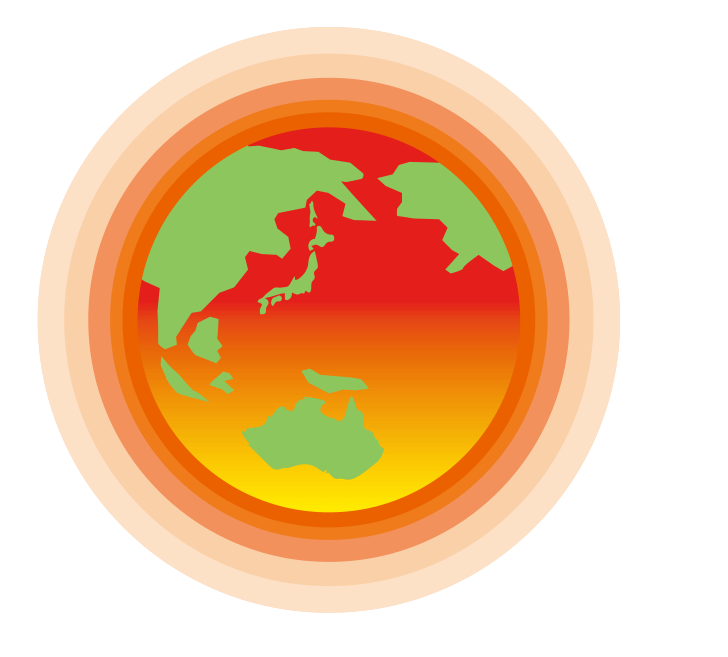"Global warming" brings about changes in the climate on a global scale. Not only the snowy mountains that are important to skiers and snowboarders, but also the global environment, whether on land or in the sea, is immeasurably affected. First, let's have some basic knowledge about global warming.
What is global warming? the mechanism
The earth is surrounded by a very thin layer of air. Sunlight penetrates the air layer and reaches the surface of the earth, warming the air near the surface. The air contains gases such as carbon dioxide (CO2) and methane that absorb heat, and most of the radiant heat from the earth's surface is lost to space, but the heat absorbed by these gases is returned to space. It radiates to the surface of the earth, and the heat of that amount stays in the atmosphere. This is the greenhouse effect. Carbon dioxide, methane, nitrous oxide, and fluorocarbons that cause this effect are called greenhouse gases.
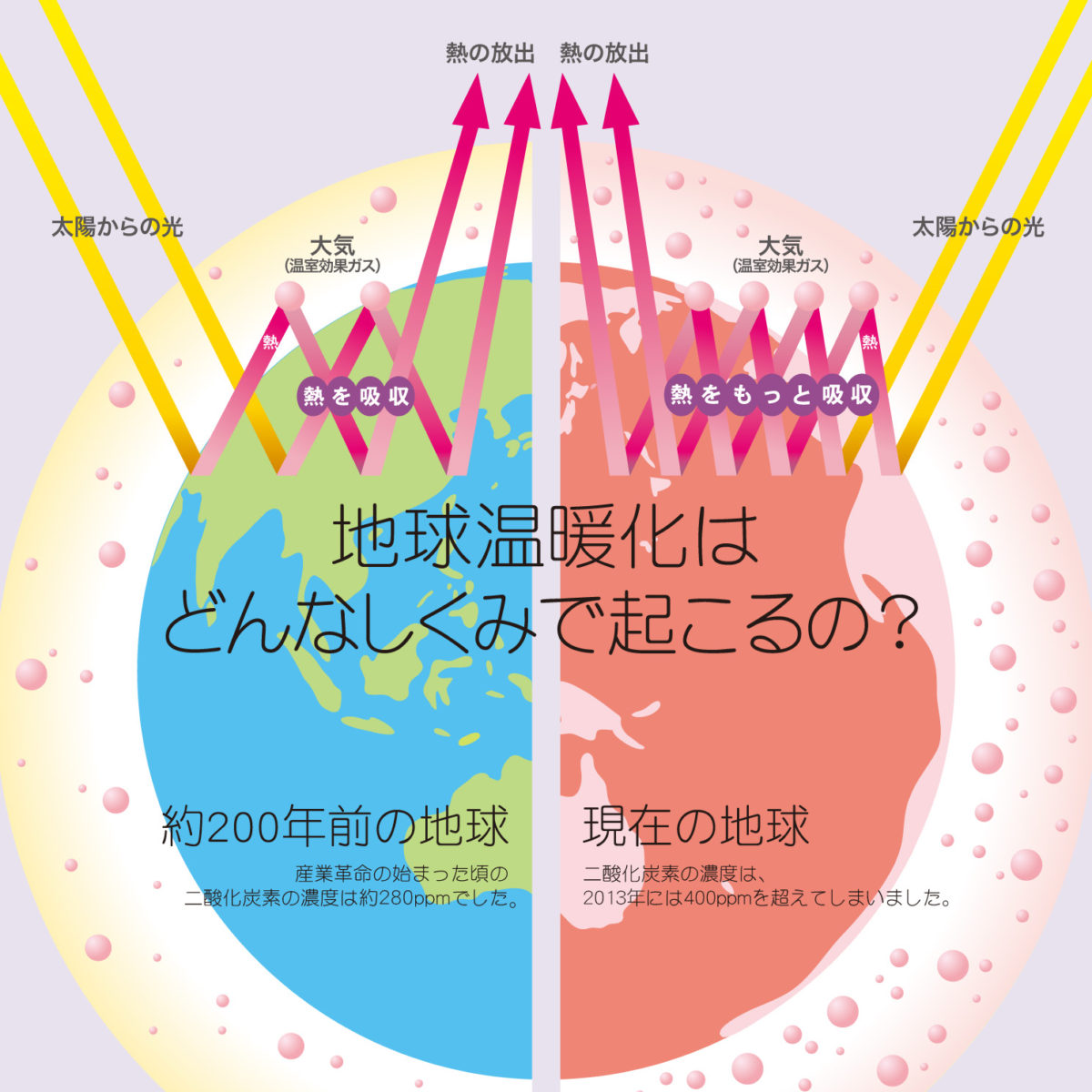
Without this greenhouse effect, the average temperature of the earth would have been about 30 degrees Celsius lower than it is now, and the surface of the earth would have been ice. Greenhouse gases keep the earth from cooling down too much.
However, since the industrial revolution, the amount of greenhouse gases in the atmosphere has increased due to the mass consumption of fossil fuels, and the temperature near the surface of the earth has risen gradually. This phenomenon has a great impact on climate change, which means long-term changes such as temperature and precipitation due to global warming.
Various dangers caused by global warming
The average temperature of the earth in the 20th century has increased by about 0.74°C over the last 100 years, and the average temperature in Japan has also increased by about 1°C. According to a report (Fourth Assessment Report, 2007) released by an international organization called IPCC (Intergovernmental Panel on Climate Change), if global warming continues at its current rate, environmental conservation and economic development will not be possible by the end of the 21st century. It is predicted that the average temperature of the earth will rise by about 1.8°C (1.1 to 2.9°C) in a society established on a global scale, and by about 4.0°C (2.4 to 6.4°C) in a society that achieves high economic growth.
Such a rapid temperature rise will affect various aspects on a global scale. First, rising temperatures cause seawater to expand and glaciers to melt, raising sea levels. As a result, storm surges cause flooding, coastal erosion, and low-lying areas are at risk of being submerged.
In addition to these environmental changes, rising temperatures will also cause great damage to the ecosystems of living organisms and human life.
If the polar ice melts, polar bears will have nowhere to live and food to eat, and will be in danger of extinction. Even in Japan, it is predicted that there will be serious damage to industry and people's health, such as the inability to produce rice as it used to be, and the increased risk of epidemics that are common in tropical regions. Check out this video from the World Wildlife Fund (WFF).
▼You tube video / Preventing global warming (1 minute 56 seconds)
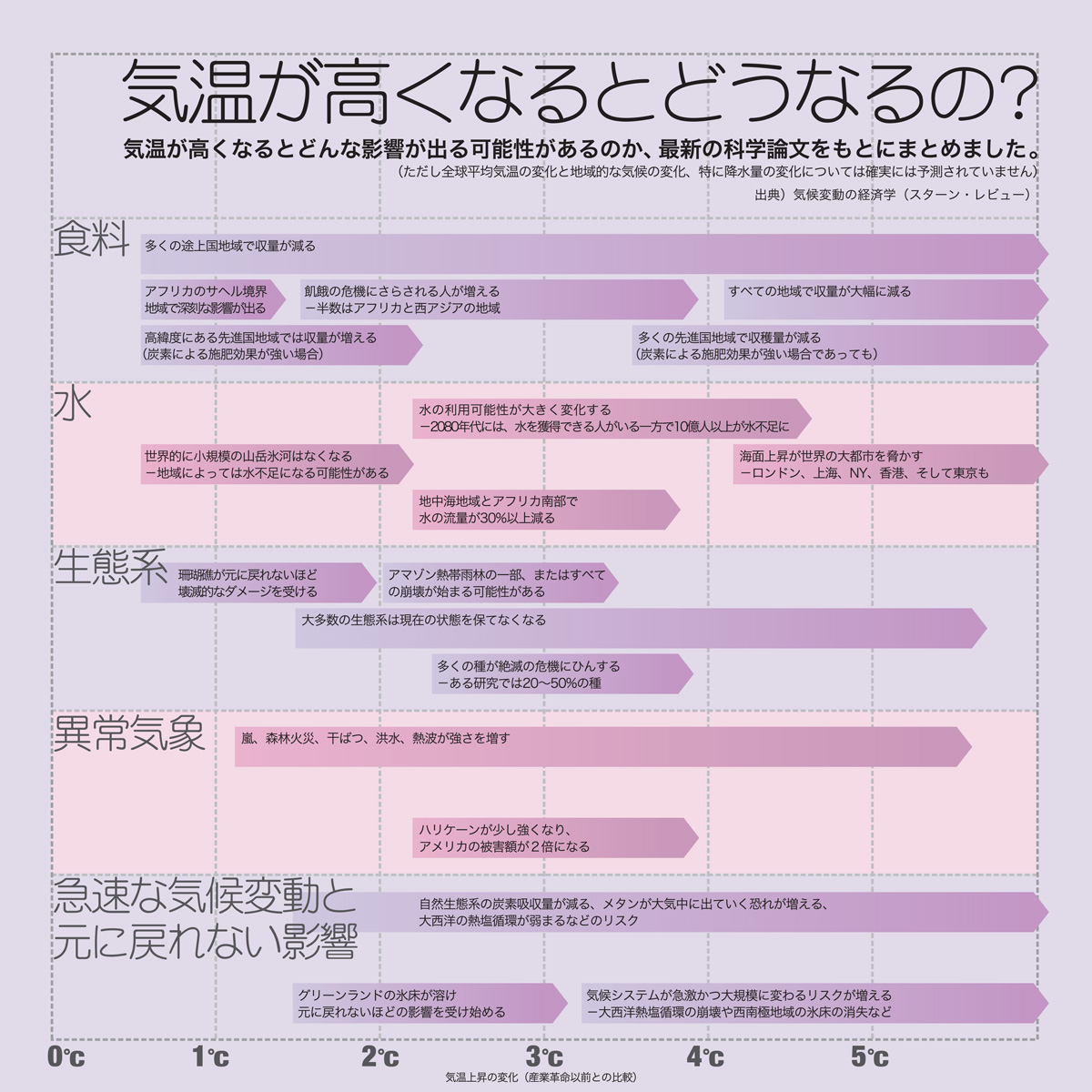
what about the snow
Global warming has been found to have profound and irreversible effects on many fronts.
If the Ministry of Education, Culture, Sports, Science and Technology does not actively take measures to curb the increase in greenhouse gases, the average annual temperature in Japan will rise by about 4.5 degrees Celsius and the average winter temperature will rise by about 5 degrees Celsius by the end of the 21st century compared to the end of the 20th century. announced that it is expected to
(Quote: Japan's Climate Change 2020 | December 2020, Ministry of Education, Culture, Sports, Science and Technology, Japan Meteorological Agency )
Tokyo in the middle of summer can be so hot that it exceeds 40 degrees Celsius, and you may not need a coat even in winter. When the cherry blossoms are blooming, the cicadas may sing. Will the scenery and people's lives change with the seasons? I imagine that global warming will shorten the season, and maybe the powder won't be as easy to ski anymore.
In fact, glaciers in the European Alps and North American Rocky Mountains are melting year by year, and there is a shocking research result that glaciers in the world's mountainous regions may disappear completely by 2050 at the current rate. , published in the journal Nature.
" Accelerated global glacier mass loss in the early twenty-first century " (Nature, 9 March 2021)
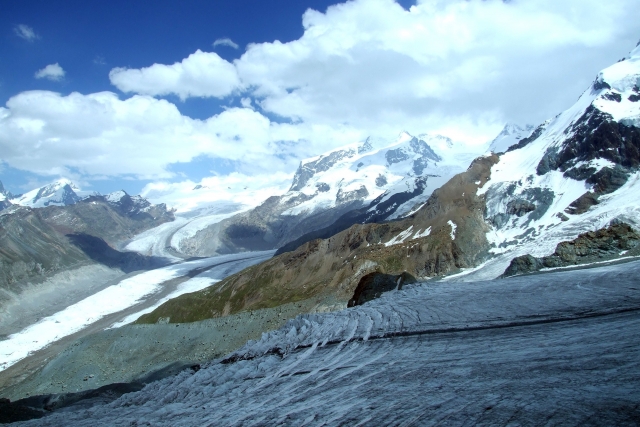
From 2031 to 2050, the annual number of skiable days at ski resorts in Japan will decrease to about one-third of the current level. Research results have also been reported that it will decrease to about 1/6 from 2081 to 2100. (Prediction of the impact of global warming on the amount of snow and the number of skiable days at ski resorts - using the Japan Meteorological Agency's RCM20 forecast, Takehiro Nakaguchi, 2010)
On the other hand, it is predicted that the amount of water vapor in the atmosphere will increase due to the rise in seawater temperature due to global warming, and the amount of snowfall will increase in the mountainous areas of Hokkaido and the Hokuriku region due to "thumping snow". there is Although the amount of snow will decrease nationwide due to the rise in temperature, there will be variations depending on the region, and you will be at the mercy of heavy and light snow, and you will be plagued by damage.
Such a future will come if things continue as they are... If so, no one who has benefited from the snowy mountains will be able to turn a blind eye. Each and every one of us must take the initiative in taking measures to curb the progress of global warming, and it is urgent that we do so. Do you feel the need to do so?
![]() Various effects of climate change (from the United Nations website)
Various effects of climate change (from the United Nations website)
https://www.unic.or.jp/activities/economic_social_development/sustainable_development/climate_change_un/climate_change_effects/
causes of global warming
Why does global warming occur? There are several possible reasons for this, but the IPCC also presented scientific data to support the idea that "it is extremely likely that man-made greenhouse gases are behind global warming." . CO₂ is the representative of this, and accounts for 95% of greenhouse gases.
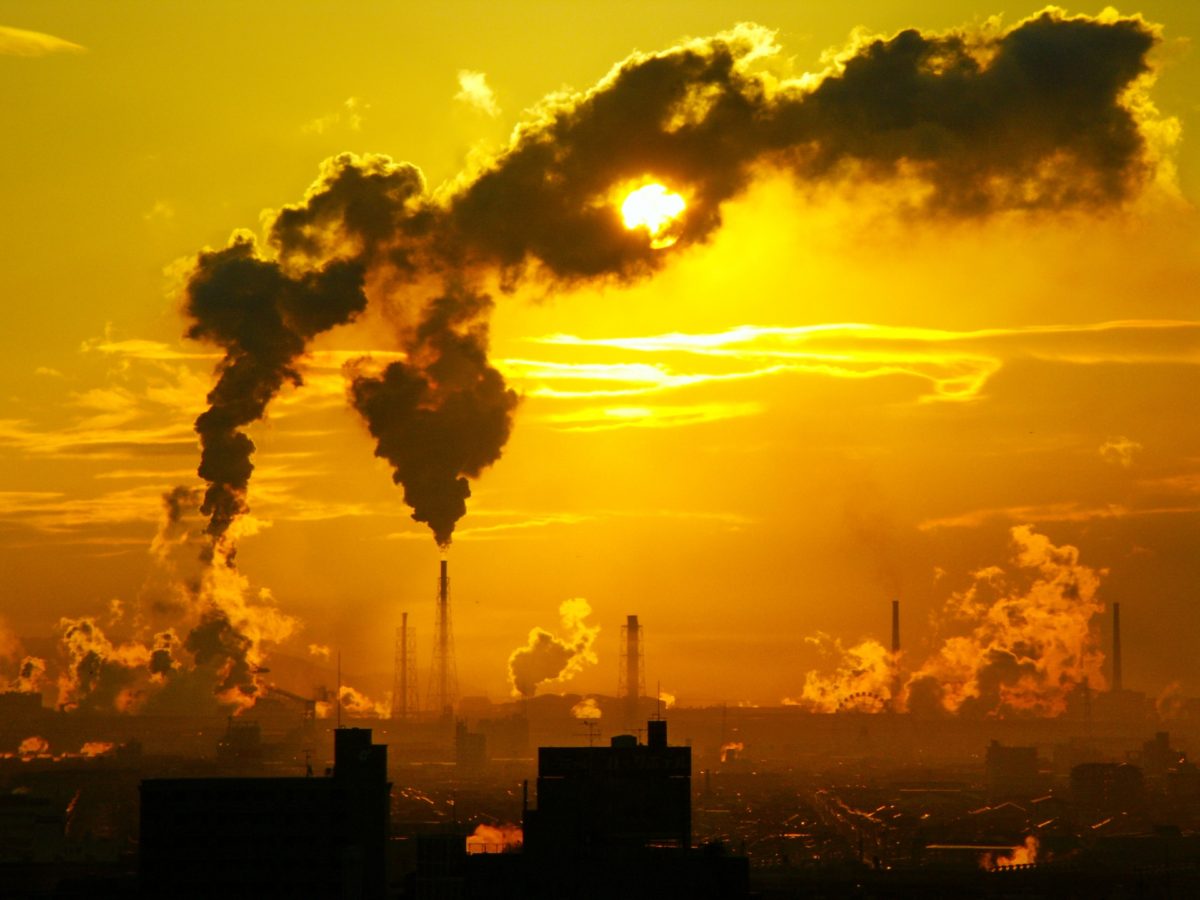
CO2 is mainly produced when burning things. For example, thermal power generation that burns plastic that uses fossil fuels such as oil, factories, and gasoline automobiles are major sources of CO₂ emissions. Most of the home appliances that people use in their daily lives also emit CO2.
Therefore, in order to stop global warming, we must reduce CO2 more than anything else. What specific actions should be taken to achieve this goal? And what can we do to protect the future of snow? I would like everyone to think about it.
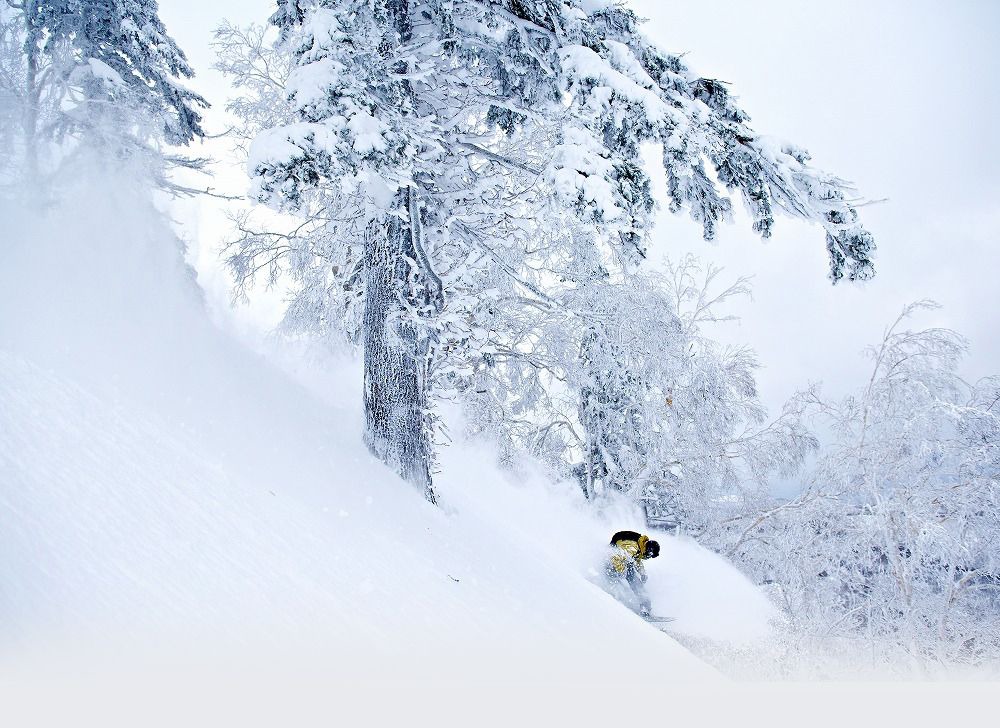
[References]
Introduction to SDGs For everyone who will change the future Norifumi Kanie (Iwanami Shoten) What
the Earth will look like in 2030 through data Kenji Fuma (Nikkei BP)
30 ways to protect the world from climate change: Our Climate Justice !
International Environmental NGO FoE Japan Climate Change/Energy Team (Joint Publishing)
A Book that Understands the Basics of Environmental Issues Hitoshi Kadowaki (Shuwa System)
Global Environment Keyword Encyclopedia Global Environment Research Group (Chuohoki)
Greenhouse Gas Reduction and Emissions Trading Mizuho Corporate Mizuho Information & Research Institute (Nikkan Kogyo Shimbun)
, “Prediction of the impact of global warming on the amount of snow and the number of skiable days at ski resorts – Using the RCM20 prediction of the Japan Meteorological Agency,” Takehiro Nakaguchi (2010),
“ Accelerated global glacier mass loss in the early twenty-first century ” (Nature, 9 March 2021)

